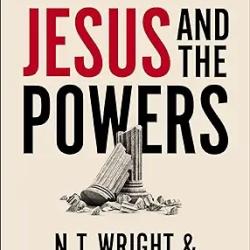On first blush this episode could just as easily been called ‘Finding John the Baptizer’. On the whole I thought this episode was certainly better, with less pure conjecture and less dogmatic pronouncements based on carbon dating involved. I thought that the testing of the bone found under the Bulgarian monastery was quite interesting, though of course things could only be narrowed down to it came from the right period and the right region. But the Oxford project of testing relics is a good one, and if nothing else could rule out a lot of them in terms of their being genuine. I would see that as a good thing, a process of elimination.
I thought once again that the drama portions of the show were well done. I especially liked the look of John the Baptizer. He was believable. And hopefully the days of a blonde and blue eyed Jesus are long gone when it comes to these sort of docu-dramas. I thought as well that we had a good cross section of scientist, Biblical scholars, and lay persons, and finally a Jewish scholar from just up the road from here at Hebrew Union in Cinci. Excellent to have his perspective as part of the show. I also thought that the portrayal of the relationship of Jesus and John was fair enough.
The one really conjectural thing was the theory of Joan Taylor that Jesus got the Lord’s prayer from John, which is mentioned almost in passing at the end of the show. It was good to have Joan on the show, since John is one of her major areas of expertise. There are certainly some problems however with her theory, because a corollary of it is that Jesus was a disciple of John, a notion for which we have no real historical evidence. From what we can tell, John baptized a lot of people who didn’t become his followers, and were not his followers before hand either. It is true, however that some of John’s followers became Jesus’ followers, and it is also true that Jesus had a very high opinion of John and his ministry and affirmed it (perhaps you will remember his famous statement about ‘of those born of woman….’. It is also in the Gospel record that Jesus and John were related. One of the tensions scholars wrestle with is how much similarity and how much dissimilarity was there between Jesus and John. Here a possible short list:
SIMILARITIES AND DIFFERENCES— Same time period, and both believed eschatological events were at hand or happening already. Both do indeed call Israel to repentance. Jesus however performs no baptisms, as far as we know (though his disciples do— see John 4.1-3), and John performs no exorcisms or miracles so far as we know. John lives an ascetical lifestyle, but Jesus does not. Indeed he is accused of being a winebibber, and a friend of sinners. Both are highly critical of the ruling powers, both appear to have criticized Herod Antipas’ incestuous marriage (this may possibly be what the exception clause in Mt. 5 and 19 is about ‘except on grounds of porneia’ might well mean except on grounds of incest, that is except when the marriage is not a proper marriage to begin with). Both John and Jesus die violent premature deaths at the hands of the authorities. Jesus’ message was rather different from John’s in some respect— for example Jesus often went around proclaiming Good News, but John seems to have simply focused on coming judgment. The show did a good job of depicting John’s confusion about Jesus’ ministry near the end of his life.
One of the things I do like about this series is that you have a sort of intervening constant narrator who shows up in all the episodes, namely David Gibson, who helps us see what the real cash value of the evidence of these relics and artifacts may be.
Next up to bat is the Judas episode, it would appear, and I can tell you now— I do not buy the theory that Judas’ actions did not amount to a betrayal of Jesus. Our very earliest evidence on this score is already found in 1 Cor. 11, from within about 20 years of Jesus death and it is very clear that Jesus was betrayed. Nor do I buy the theory that Jesus desired for Judas to betray him to the authorities in order to engineer his own demise. The man who prayed in the Garden of Gethsemane for the cup to pass, is not a person who has a crucifixion wish. Jesus was prepared to die and concluded it was indeed God’s will, but it’s another matter entirely to suggest he colluded with Judas to make this outcome happen.














